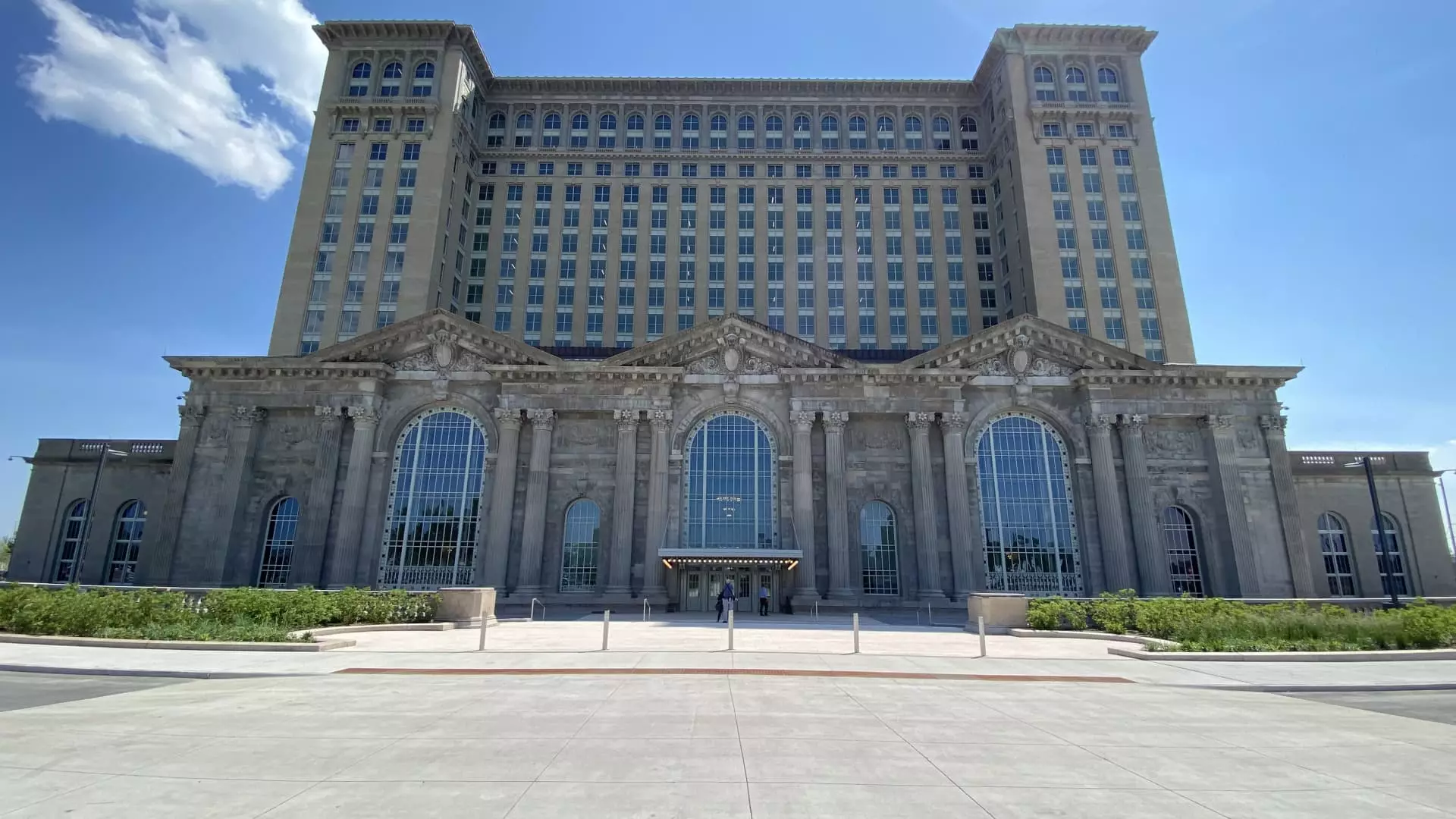Ford’s latest endeavor involves the revitalization of an iconic Detroit landmark – the Michigan Central Station. Once a symbol of the city’s decline, this abandoned train station is now in the process of being restored by the automaker as part of a new technology campus project. The $950 million endeavor includes the renovation of the 18-story historical building, an adjacent 270,000-square-foot structure, and additional supporting facilities. Originally announced in 2018 with a planned opening in 2022, the coronavirus pandemic and extensive renovation work have caused delays in the project’s completion.
Despite challenges faced by Ford and the automotive industry as a whole, the restoration of Michigan Central Station is seen as a pivotal move for the company. Ford Chair Bill Ford Jr. emphasized the importance of this project in terms of talent acquisition and retention. In a time when many companies are downsizing office spaces due to remote work trends, Ford believes that providing a stimulating work environment is essential in attracting and keeping top talent. By offering unique problem-solving opportunities and a vibrant workspace like Michigan Central, Ford aims to position the company as an attractive employer in a competitive industry.
Situated in the trendy Corktown neighborhood, the Michigan Central campus spans 1.2 million square feet of commercial space, including retail, restaurants, and hospitality venues. With $300 million in state, local, and historic tax incentives, the restoration of the train station involved meticulous attention to detail. Architects and designers painstakingly restored the building’s original grandeur, matching materials and referencing historical photos to recreate its former glory. The project also involved engaging with original suppliers and reopening a quarry to source necessary materials.
Ford’s vision for the Michigan Central campus extends beyond housing its own employees. The project aims to create an ecosystem of collaboration by bringing together various entities, including local universities, businesses, and startups. The adjacent Detroit Public Schools Book Depository building already accommodates over 600 employees from a variety of startup companies. Google, a key partner in the initiative, runs a coding program from this location. The goal is to foster creativity and experimentation by facilitating interaction between different organizations and disciplines within the campus.
For Bill Ford, the restoration of Michigan Central Station is part of a larger legacy of transformative projects in Detroit. As a great-grandson of Henry Ford, he has been involved in initiatives such as relocating the Detroit Lions to Ford Field and revamping the River Rouge Assembly Plant into an environmentally friendly facility. Michigan Central represents a continuation of this legacy, serving as a testament to Ford’s commitment to revitalizing the city and creating spaces that benefit both employees and the public. Ford sees this project as a culmination of his past efforts and a lasting contribution to the community.
The restoration of Michigan Central Station by Ford signifies more than just a physical renovation. It is a symbol of revitalization, innovation, and commitment to Detroit’s future. By transforming a once-abandoned landmark into a thriving technology campus, Ford is not only reshaping the city’s skyline but also creating a hub for collaboration, creativity, and growth. The revival of Michigan Central Station stands as a testament to the power of vision, perseverance, and strategic investment in shaping a better tomorrow.

